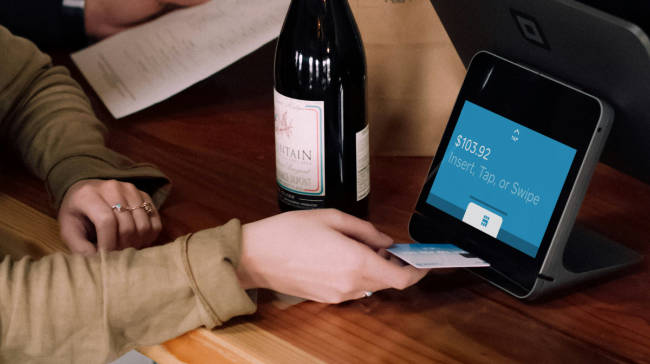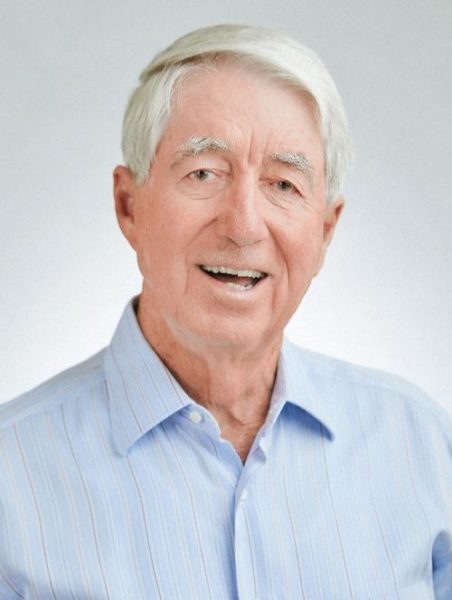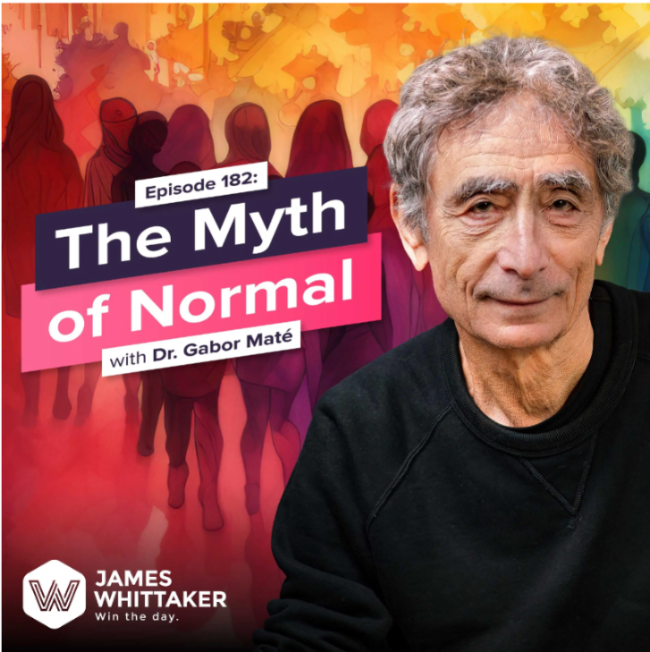
Answer not a fool according to his folly,
lest thou also be like unto him.
PROVERBS
Welcome to our May newsletter.
Thanks for the wonderful feedback on the new book, Wills, death & taxes. I’m so thrilled that it’s touched a chord with so many of you. The email from Laura is typical:
“I am loving the book. I’ve already acted on some of the suggestions and I’m only halfway through. It’s so clear and comprehensive and the reader’s stories are great illustrations of what can go wrong if you don’t do things properly. Congratulations.”
The feedback on the Executor’s cheat sheet has been fantastic. I’m so pleased you found it a useful resource and hopefully it will be fully operational within two or three weeks. You can find a beta version on my website but just bear in mind is not interactive – all you can do is print out a form and read it:
A big thank you to all you good people who read my newsletter. The first edition went out in 1999 and the purpose of it was to provide financial education with no strings attached and to cover material that is often not presented properly in the press. There has never been a charge for the newsletter and there never will be because I believe financial education should be available to everybody irrespective of their circumstances – I have never accepted paid advertising because I don’t want to be in a position of conflict. Having said that I’m very happy to recommend products which have proven to be useful from my own experience.
Many of you send the newsletter to friends which is a nice compliment but we’ve just noticed that often the links do not work properly if the newsletter is forwarded. So my wish for today is that you encourage your friends to subscribe to the newsletter. There is no charge and no obligation. That way we can keep the financial education spreading around. They can view recent editions and sign up on my website here:
Subscribe to & view Noel News here
You can also find the subscription box in the footer of all website pages.
Estate Planning
As promised, I’m going to focus on estate planning for the next few newsletters and as part of this, I’ll further explain the questions I asked in the special bulletin. Here are the next four questions and their answers.
1. The major mistake made by many pensioner couples when they are making their will. Getting it wrong can cost the survivor their entire pension.
The major mistake is leaving all their assets to each other in their will. There is a big difference between the asset cut-off point for a single person and that for a couple. As of 20 March 2024, the single homeowner cut-off point was $674,000, whereas for a couple it was $1,012,500. Many pensioner couples make the mistake of leaving all their assets to each other, which can cause a lot of extra grief when the surviving partner finds they have lost their pension as well as their partner.
 Image by Stockking on Freepik
Image by Stockking on Freepik
Jack and Jill had assessable assets of $740,000 and were getting around $21,250 a year in pension. Jack died suddenly and left all his assets to Jill. This took her over the assets limit for a single person and she lost the pension entirely. Had he left the bulk of his estate to their children she would have been able to claim the whole pension plus all the fringe benefits.
2. How to handle the complexities that occur when you are left a property situated overseas.
This is a most complex issue and is discussed in detail in Wills, death & taxes. Legacies of overseas assets have become very common and how you handle them can make a big difference to the outcome. In the book we give the case study of a person who inherited a property in London, looked up solicitors in the Yellow Pages and found a firm at the Gold Coast that promised to do it all for $5000. They had never done this sort of work and didn’t even know they would need to get probate in the UK – the fee ended up in excess of $50,000 and the estate ended up paying interest to the grandchildren who were beneficiaries because of delays.
 Image by rawpixel.com on Freepik
Image by rawpixel.com on Freepik
The most common situation is where the estate is not an Australian tax resident, but the beneficiary of the estate is. In this situation, the tax treatment varies depending on what you receive and when you receive it.
First, the tax treatment depends on whether you receive the property before it is sold (an in specie distribution) or if the estate sells the property. It is quite common for beneficiaries to be unaware they have received the actual property in their own name, and to think it is still owned by the estate. If the will allows an in specie distribution, and if it is a good outcome for tax purposes, usually all the executor needs to do is change the name on the title documents from the deceased to the beneficiary or beneficiaries.
Remember, getting your estate planning wrong does not just involve stress and waste of unnecessary time, it could cost over hundreds of thousands of dollars.
3. Strategies to prevent family squabbles.
It’s impossible to guarantee there will be no family fights when somebody dies, but the more you prepare for it the better the outcome usually is. The more transparent your situation can be the less likely some family members will feel disadvantaged. This includes letting all potential beneficiaries understand what type of assets are held in the estate, and if one person gets more than another, the reason for this must be spelled out. It may well be that they got more help when they were younger. It’s also useful to have a written document that sets out the reasons for the willmaker to make a will in the manner they did.
 Image by Tyler Nix on Unsplash
Image by Tyler Nix on Unsplash
4. What do you need to know if you wish to contest a will.
Conveyancing is not the cash cow for solicitors it used to be, as so much is now done online. To make up for the revenue shortage many law firms are now advertising ‘no win no fee’. As covered in detail in the book, the major factor for contesting a will is the deadline for making a claim. While it may be possible to obtain an extension of time, the court will consider matters such as the reason for the delay, the behaviour of those involved, and the strength of the application. Extensions are often refused if the estate has already been distributed, and estates should generally be finalised within 12 months of the date of death. So, time is very important. Also, only certain people are eligible to contest a will, and a properly drawn will with expert advice can often make a potential challenge seem too difficult.
An executor’s story
This week, I was having lunch with a friend who is a retired business executive. This is his story in his own words.
“It’s been a frustrating four weeks – I am executor for the will of a man who never married and died at the age of 83. The first problem was he was also an executor for another estate when he died – we took the view that that was the other estate’s problem and not ours. He had no children but had 13 beneficiaries living all around the country. This meant a lot of work as their details were somewhat sparse and we had to track them all down. There were further complications as one of them was 16.
The next problem was that a major asset was his superannuation but he had not lodged a tax return for many years. Because the entire estate was subject to the death tax as all the beneficiaries were non-dependents, the appropriate tax returns needed to be lodged before the money could be distributed to them. The tax office would not let us use my accountant. Because the deceased did not have a current accountant it was up to me to call the tax office and explain the whole situation and get a tax file number. This took hours.”
 Image by Drazen Zigig on Freepik
Image by Drazen Zigig on Freepik
In the new book we point out that becoming an executor can be an onerous task, especially if there is poor record keeping. This is why we stress how important it is to have the right documents available.
Travel tales
We will be visiting James and his family in Los Angeles this August and Qantas initially quoted $17,000 each for return business class from Brisbane. But the travel agent advised that if we booked for one day later the fare would drop to $12,000 each – it just shows the value of a good travel agent. Airline ticketing is one of life’s mysteries.
 Image by pikisuperstar on Freepik
Image by pikisuperstar on Freepik
Anybody going to America needs an ESTA, which is like a visa. You apply online. I’ve done it a few times and only got caught once when I ended up at a website that was not the official US site and ended up paying $45 instead of $30. My first tip is to go to the American government site and nothing else. I found the online form extremely frustrating you have to enter the phone numbers of people you are visiting as well as your own phone numbers. No matter how I tried to enter a number they said it was invalid. Luckily there is an option to enter zeros if you didn’t know the number so I got around that challenge by entering zeros.
I finally completed my application and paid my US$21 using PayPal. I waited and then clicked the ‘Check on my Status’ button. I copied the application number I had been given at the start, but the website kept telling me that number did not exist.
I started the process again, but at every second page I hit the ‘Save and Exit’ button to check I did have a valid number that seemed to work. On top of that, I kept getting an error signal which made me think nothing was working, but by pressing okay the process kept on going. After much headache and stress, it was approved. I’m not even going to try to get a refund of the first $21. That’s a hassle I don’t need.
The big lesson here is: Don’t leave your paperwork to the last minute.
 Image by jeschoots.com on Unsplash
Image by jeschoots.com on Unsplash
I have a speech at Palm Beach soon and I thought Geraldine and I could stay at the Langham, a fairly new hotel on the Gold Coast. I rang the Langham to discuss the type of rooms they have and was told that everybody was busy and they would ring me back. I rang the next day when they hadn’t rung me back and they said I was better off to sign up for the Brilliant by Langham Club, which offers great service and discounts.
I couldn’t find a discount code but I did try to book two nights. The confirmation and payment notice came back as one night only, so I emailed the Brilliant by Langham Club asking to change the booking to two nights. I have yet to get a reply. The upshot is we’re staying one night, not two nights, and will never consider the Langham again.
There seems to be a trend with big businesses to push customers away from dealing with people. The banks are a typical example.
Travel finance
International travel is booming as people take advantage of slightly reduced fares and the northern hemisphere summer. This raises the perennial question of the best travel finance to use. Travellers’ cheques are old hat; it’s really a choice between credit cards and debit cards. And you need an armoury of these to cater for whatever may come your way.
First, carry a credit card for the sole purpose of checking in at accommodation. Everybody will want an imprint of the card to pay for ‘contingencies’, but they are quick to put money on and can be slow to take it off.

It’s embarrassing and inconvenient when your credit card is blocked because some hotel has used up your credit limit. Take it from me, fixing this is a matter of days not hours – hence my recommendation of a dedicated credit card. I use American Express for this. I never use it for overseas transactions because of the massive fees; it sits in my wallet purely for check-in purposes.
Next is your choice of debit or credit cards. I’m a big fan of debit cards because you know exactly what you are spending and you never come home to a large, unexpected credit card bill. I still recommend carrying a second credit card as a backup in case your debit card is compromised, or you need emergency money. I use Latitude, which has no fees, but hits you with a usurious penalty interest rate of 27.49% if you don’t pay the entire balance on time.
If you intend to withdraw cash from ATMs around the world you should definitely use a debit card. The fees for cash advances on credit cards are huge – for example, Latitude charges 29.99% a year. I haven’t used cash when travelling overseas for years, but friends tell me cash is essential if you are going on trips where you need to tip the guide.
The banks are pushing cards for travellers that lock in a currency rate on their card before you leave home ‘to guarantee you won’t be hit by adverse exchange rates as you are travelling’. The problem is that the banks hit before you go by charging high commission rates.
Thanks to a reader who travels regularly for business I have discovered what I think is the perfect solution: the Wise debit card.

Wise is a global technology company on a mission to build the best way to move and manage the world’s money. And in my opinion, they seem to be succeeding. Wise offers an extremely efficient international (or multi-currency) account, offering people the ability to open over 40 different currencies within their account and spend like a local wherever they are, in the local currency every time.
The Wise account offers the option of up to three virtual debit cards instantly within the app, which you can connect to your Apple or Google wallets so you can easily spend straight away, using your device. There’s also an option of ordering a physical debit card known as the Wise Card (for a one-off $10 fee) for those more prone to using cash when abroad. Wise also offers fee-free ATM withdrawals up to A$350 equivalent a month.
It uses the mid-market exchange rate, which is essentially the ‘real’ exchange rate – the one the market naturally sets and that you’d see on Google. That means you’re not paying for any exchange rate markups or hidden fees, which is how banks and most other providers make money on FX transactions.
I signed up for my Wise Card from home using the app. It was simple. And I have used it for travel ever since. It’s working seamlessly and I’m really enjoying the savings on exchange rates. All you do is transfer Australian dollars to your Wise account. Then use the app to convert as much as you wish to the foreign currency you want, at a time of your choice.
So that’s my how I do travel and both a virtual and physical Wise debit card holding all the currencies I need.
James’s new podcast
What Your Health Says About Your Past
If you’re looking for an interesting podcast, my son James just interviewed acclaimed physician and author Dr. Gabor Maté. They cover a lot of interesting topics related to raising children, where the medical system is going wrong, and how your approach to trauma affects everything from your decision-making to your immune system.
It’s a fascinating episode and you can check it out here as both an audio podcast and a video on YouTube. I must say it got me thinking in great depth about my own life experiences.
James’s Win the Day podcast recently hit 50 million views and is listened to in 132 countries. He promises me that there are more great episodes coming up.
Troubles with Telstra
It’s fascinating the way telephones have evolved over time to match changing needs. When I was a kid we picked up the phone and asked for the number – then we got dial phones – finally they were replaced with touchpad numbers. Next came the speaker. And if you think about the way the world is now, you can see why the number and the speaker have become the most vital components.
In the ‘good old days’ you could ring any organisation and talk to a real person. Today, you get a recording telling you the call is being recorded for training purposes, after which you are offered the opportunity to go to their website and listen to their privacy policy.
Once that time-wasting rigmarole is out of the way, you select a numbered option from a verbal menu and at last get a recorded message saying, ‘We are receiving an unusually high volume of calls today’. At this point you put your phone on speaker mode, knowing that you will be subjected to a non-stop monologue about how they strive to give good service. You continue working, hoping the wait time won’t be more than 30 minutes.
These thoughts came to mind recently when I went for a haircut. It’s a small operation run by two charming women, and when I got there they were in a severe state of frustration. Judy had the phone to her ear and told me their system had gone down and she had been waiting on hold for Telstra for over 90 minutes. It’s not just a waste of productivity – a hairdresser can’t cut hair and hang onto the phone at the same time.
But the problems didn’t stop there – no Telstra meant no cash register.
Nobody could pay for their haircuts unless they had cash. When the phone was eventually answered, the Telstra employee’s accent was so strong that none of us could understand what they were saying.
I suggested they move to Aussie Broadband – I’ve never had to wait more than seven minutes, and you get answered by a person you can understand.

Now it just so happened that we were having dinner with some friends on Saturday night, and the topic of problems with Telstra was instigated by the hostess. This really captured my attention when she told me she had ‘solved the Telstra problem’.
She said that, while waiting on hold for companies like Telstra is a horrible business, customers are now encouraged to talk with a chatbot. That surprised me! Every time I have tried to use a chatbot it’s been a disaster: it never seems to know what I’m talking about, and asks stupid questions like, ‘What is your account number?’ when I have already typed it in.
But then she revealed the secret ingredient. She said, ‘All you have to do is tell the chatbot that you want to speak to the ombudsman.’ Apparently, big organisations are terrified of the regulators, and the mention of the word ombudsman throws the chatbot into a panic. The response was instantaneous, and she got a message that somebody would call within two business days.
I told her I’d believe that when I saw it, but she assured me that a Telstra person duly called within two days and she could finally discuss the matter that had been the purpose of her original call: years of overcharges. She then gave me a second nugget of gold: understand Telstra will try to beat you down and start with a low offer. After some robust negotiations, she got four times what they first offered her.
And Finally
Ask your doctor if a drug with 32 pages of side effects is bad for you.
I relabelled all of the jars in my wife’s spice rack. I’m not in trouble yet, but the thyme is cumin.
Driver: “What am I supposed to do with this speeding ticket?”
Officer, “Keep it. When you collect four of them, you get a bicycle.”
I asked a supermarket employee where they kept the canned peaches.
He said, “I’ll see,” & walked away.
I asked another & he also said, “I’ll see,” & walked away.
In the end, I gave up & found them myself, in Aisle C.
A guy walks into a lumberyard & asks for some 2x4s. The clerk asks, “How long do you need them?” The guy answers, “A long time. We’re gonna build a house.”

The best way to get back on your feet is to miss two car payments.
I love bacon. Sometimes I eat it twice a day. It takes my mind off the terrible chest pains I keep getting.
I told my physical therapist that I broke my arm in two (2) places. He told me to stop going to those places.
When I was a kid, I used to watch the ‘Wizard of Oz’ & wonder how someone could talk if they didn’t have a brain. Then I got Facebook.
I just burned 1,200 calories. I forgot the pizza in the oven.
I hate it when people act all intellectual and talk about Mozart, when they’ve never even seen one of his paintings.
Never trust an electrician with no eyebrows.
So my neighbour knocked on my front door at 3 am. 3AM!!! Luckily, I was already up playing the bagpipes.
 I hope you have enjoyed the latest edition of Noel News.
I hope you have enjoyed the latest edition of Noel News.
Thanks for all your kind comments. Please continue to send feedback through; it’s always appreciated and helps us to improve the newsletter.
And don’t forget you’ll get more regular communications from me if you follow me on X – @NoelWhittaker.
Noel Whittaker

